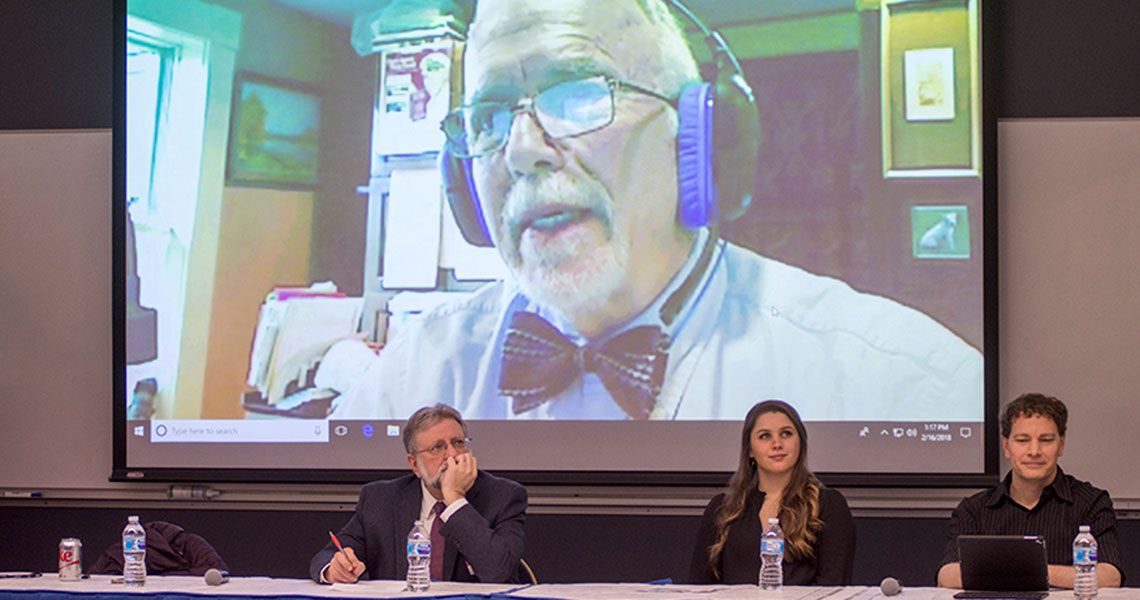In 2016, more than 42,249 deaths were attributed to opioid use, according to the Centers for Disease Control and Prevention. That’s the equivalent of more than 14 Sept. 11 attacks in a single year. In mid-February, physician assistant (PA) students at the George Washington University (GW) School of Medicine and Health Sciences (SMHS) heard from a panel of experts about the role they can play to combat the epidemic.
John Aldis, MD, a family physician practicing in Martinsburg, West Virginia, kicked off the session with questions for the room full of aspiring PAs: “Would you be good at taking care of these patients? Can you be a compassionate and caring provider?”
Physicians can’t tackle this health crisis alone, he added, and they need people there to support them, including PAs. “These patients are so grateful; you are saving their lives. … But can you meet the patient where they are in their addiction? These patients are challenging. Can you accept the reality of their addiction?”
GW PA student Aaron Sours described his own experiences assisting with primary care in a rural community grappling with a high opioid abuse problem on Maryland’s Eastern Shore. Education, he said, is key for PAs wanting to help patients with opioid misuse or abuse issues, including understanding the waivers necessary to prescribe treatments for opioid use disorder, as well as the hurdles patients themselves face in getting care.
While the situations that led to the epidemic are multi-faceted, added Dave Keahey, chief policy and research officer at the PA Education Association (PAEA), it’s important “to understand where we are today is not some type of thing that popped up in the last 10 years, it’s been 20 to 30 years in the making. If there’s no other message you gain today, it’s that you have an ethical responsibility to be part of the solution.”
In addition, he said, PAEA has been awarded a grant to educate a minimum of 30 percent of PA students and 30 percent of faculty throughout the country trained in “medication assisted therapy (MAT).
Students also had the chance to see the issue from the policy side. Kate Dixon, Health Policy Fellow for Kansas Rep. Roger Marshall, MD, said many new restrictions and mandates are being implemented at the state level, such as supply limits, identity checks by pharmacists, and continuing medical education for clinicians, among others.
“It’s on the next generation of our health system to start solving the problem. The first part of that is staying up to date … it really is important to stay connected with what’s going on, especially in your state,” she told the students. “The PAEA and AAPA are great sources to connect with. Reading newsletters and Press Releasess to know what’s going on in the world of policy that directly effects your profession is also immensely important.”
Lisa Alexander, EdD ’03, MPH ’89, PA-C ’79, professor of PA studies at SMHS, concluded the event by telling students she hoped they would leave with a greater understanding of the problem, and also solutions to help solve it. “If you find yourself moving to a community that is a hotspot for the epidemic, I would urge you to become an involved citizen,” she said. “You will be surprised at the power that you have as a clinician to make a difference.”



